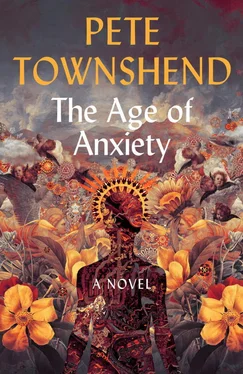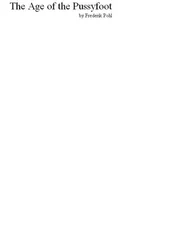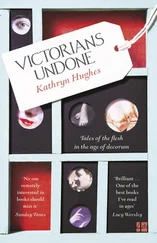“You’re Floss,” he said, holding out his hand, then getting to his feet. “You were at the wedding.”
“That’s me,” she replied. “It was a good day.”
“You’re the rider girl, yes?”
“Right again.” Floss tossed the missing blond hair she had sported the day before, now cut short. It was a strange but delightful action.
“Do you ride?” she asked. “Ever had a pony?” She looked at Selena to share the joke, to make it clear that she, being a girl among girls, was teasing him a little. But Selena was starting to look furious.
“Not me,” Walter said. “My parents used to ride, but I am a bit frightened of horses, always have been.”
“We shall have to fix that.”
Flashes of golden light make the sound of cymbals and gongs, brief and splashing. A tower made of thin metal girders wavers in a powerful breeze. A young woman gasps. The entire world around her is vibrating. Another building falls. This time it is a building made of metal, girders, bells, tubes (like those from xylophones), tautened wire, tightened strings of cable, booming sheets of hanging aluminum sheeting, walls made of cable-stretched skins of exceedingly thin metal membrane wavering and vibrating with the gently moving air. As it collapses, the mixture of metallic sounds is cacophonous and shocking—a far more disturbing noise than the collapse of the glass cathedral. At one point one of the long, ringing, shining stainless-steel tubes, tipping slowly from upright, falls against one of the thin membrane walls and begins to tear through it; the noise is excruciating, teeth-rattling, spine-curdling. All this is punctuated by the enormous low-frequency thuds of huge steel girders collapsing and the rising whine of cables being stretched to their limit, twanging, flipping, spinning, whirring and whipping, and then finally breaking. When a really large sheet of plate metal begins to lean, breaks free of its popping restraining bolts, falls and hits the ground, the noise it makes is quite unusual. A clean sound, without the anticipated deep thunder. A kind of open-mouthed barking sound, slowed down by some digital device: arrrwraaannggargh . Drawn out too, as it has landed on top of a girder and is almost perfectly balanced, the girder the fulcrum of a wobbling seesaw of a massive, rollingly unstable metal plate as big as a ship.
Siobhan went back to her family home in Waterford that night. She had missed the moment when Floss had usurped her and, without even really trying, had ousted her and stolen her husband. Siobhan also missed the moment when Walter fell in love for the first time with a girl who was perhaps his equal in some ways. It would always look to all of us that this moment had happened to Siobhan as though in a scene “offstage,” a side event that would turn out to be life-changing and humiliating for the great Irish beauty Siobhan was taken to be, and felt herself to be.
The cottage was in Duncannon, a village with a few fishing boats and a rather romantic old fort. The area was quiet, and felt real. Technically in County Wexford not Waterford, but Waterford was the nearest big town. Although she had been shocked by the money thing with Frank, she felt perhaps that this might mean she and Walter could spend some time together at last, and she could get her husband away from the bar at Dingwalls, the creepy women hanging around, Crow’s miserable and negative controlling whining, the Hansons’ obvious ambition. She also wanted to get her man away from me for a while.
And then there was this floozie Floss. Selena had called her about Walter meeting her again at Dingwalls, and described how obviously taken with her he had been. Weeks later. But had Siobhan experienced even a moment of doubt? I think she believed she would draw Walter back to her. She sat in Duncannon writing a letter as a couple of logs she’d found crackled on the fire. The window was open to the garden, a vixen cried from the copse across the road, and an owl hooted. There was no phone, and no email. She didn’t even have a radio or TV in the house. She planned to spend her time trying to write poems. In one sonnet she had started she would allow herself to complain to Walter—who was quickly becoming a mere phantom in her immediate daily life—about the way he had wasted his talent helping to sell cars and trucks rather than describing his love for her.
I hoped for Shelley, Byron in your pen
I longed for you to rise to meet your star
The songs you wrote moved drinks across the bar
Why would you waste fine words on drunken men?
And wasting once, go on to waste again?
No sonnet to Siobhan, how could you mar
Our love with elegies to some fast car?
For money? What can those in love dare spend?
You’ve sold your talent; then your soul is sold.
You’ve championed commerce—why? So you’ll be “free”?
I love you, and I’ll always tightly hold
The hope that one day you might dream with me
To Waterford! I’m gone! I’ll take my heart.
I can’t stand by and watch you lose your art.
Pretty good, she thought. She’d used the old romantic Italian rhyming scheme for the sonnet, sometimes used by the sixteenth-century English courtier Sir Philip Sidney, although the modern Irish poets Heaney and Muldoon would always be her real passion. A friend who was a junior editor at Faber & Faber had suggested she write more sonnets; they were becoming popular again. As yet she had not been published, but she felt sure it would happen soon. She thought about completing the sonnet now and including it in her letter. She’d challenge Walter to put it to music and he would try, and probably fail. She smiled, it was pleasant mischief, but she demurred; Walter was probably lost to her for the time being. There would be no point. She had to be patient. He would come to her, eventually. If he did not come, she would divorce him. But he would come, she was sure of it. There was no woman as potent as she was, and if there had been such a woman, she herself would have wanted to possess her.
It would become clear to us all that Siobhan had overplayed her hand with Walter when she went home to Waterford. She had intended to challenge him. He had decided to quit the band, but he had also decided to quit art in any form. Had she allowed him simply to fade away for a while and find out what would work for him, their marriage might have been saved. Siobhan had never really bothered to investigate whether Walter’s meeting with Old Nik had driven some kind of wedge between them or what the deeper causes of their breakup might be. She seemed completely insouciant as far as I could tell.
I wrote to her with sympathy, expecting her to reply angrily for my encouraging Walter to honor his creative dark side; instead she responded philosophically. She wrote that she intended to leave her job at the BBC; she was fed up with world affairs, politics, and research. Walter had given her some money, and they had sold their little flat in South Ealing, so she felt secure, at least for a while. She was going to write poetry herself, the now famous Sonnets .
She also asked about Rain, how she was, and how she might feel about the possibility she might soon divorce Walter? As I read these questions my intuition kicked in. I had a hunch Siobhan might be asking on behalf of Pamela rather than herself. Pamela must surely want to know how Rain was coping, whether she was happy.
In the letter, Siobhan said she knew the nunnery Pamela had entered. She said it was very strict and visitors were not allowed. Something about this expression felt disturbing. She used the word “nunnery” in a way that made it sound as though my ex-wife had started work in a bordello or something. There was an irony there I couldn’t quite place. Did Siobhan know where Pamela was living? Neither Rain nor I had heard from her for years.
Читать дальше












